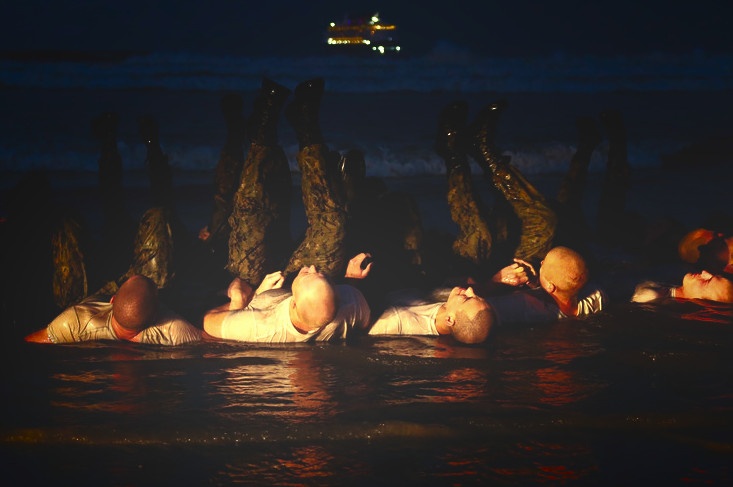
Training with COVID-19 precautions for the Naval Warefare Center in California
The Naval Special Warfare Center in California will re-open its doors to professionals. The SEALs will start training again and new maritime special operators will be formed, with COVID-19 precautions.
Training in the Naval Special Warfare Center began, but with COVID-19 pracautions!
Navy Capt. Bart Randall, the commodore of the Naval Special Warfare Center in Coronado, California, said training for new maritime special operators, or SEALs, began again May 4 after being suspended in March due to the COVID-19 pandemic.
COVID-19 precautions – Randall made changes to the training regimen for special warfare personnel. Instructors will wear masks and gloves and use megaphones rather than yelling face-to-face. The number of students in a room will also be reduced, he said. ”Our classes will maximize bubble-to-bubble travel in order to limit personal contact outside of their training cohorts, and they’re going to remain on base until after the candidates complete Hell Week,” Randall said.
One of the COVID-19 precautions will be the monitoring of the Naval Special Warfare Center students
The students will be quarantined together, and their health will be monitored daily. There will be no reduction in the standards that students must meet to become SEALs or special warfare combatant-craft crewmen.
”I am confident in our constant medical assessment that we have with these students,” Randall told reporters during a conference call. ”I’m not afraid to continue [to] train or, if conditions should change, I will pause training. Because the No. 1 thing to me is the health and welfare of these students.”
Students who come down with the virus will be pulled from the course immediately and go through the full medical procedures the Centers for Disease Control and Prevention recommends, the captain said.
COVID-19 precautions and the outcomes
Right now, no one at Coronado has tested positive for coronavirus, Randall said. The center is part of the test protocol that gives faster test results. Although 100 percent of the personnel at the center have not yet been tested, they are moving in that direction, Randall said.
The pause in the course should not affect the yearly number of special operators the center produces. The number of people who pass the legendary tough course varies from cohort to cohort. Yearly, only about 25 percent of those in the basic course qualify to become SEALs or special warfare combatant-craft crewmen.
READ ALSO
British Army support during the COVID-19 pandemic
COVID-19 precautions in Japan: next step of the emergency
Precautions – Is COVID-19 lockdown in South Africa working?
Coronavirus, what patients with heart disease should know about COVID-19
On USNS Mercy board – The biggest Naval Hospital in the world by US


